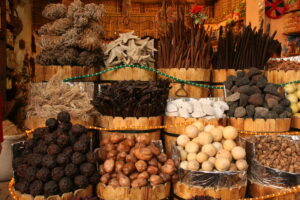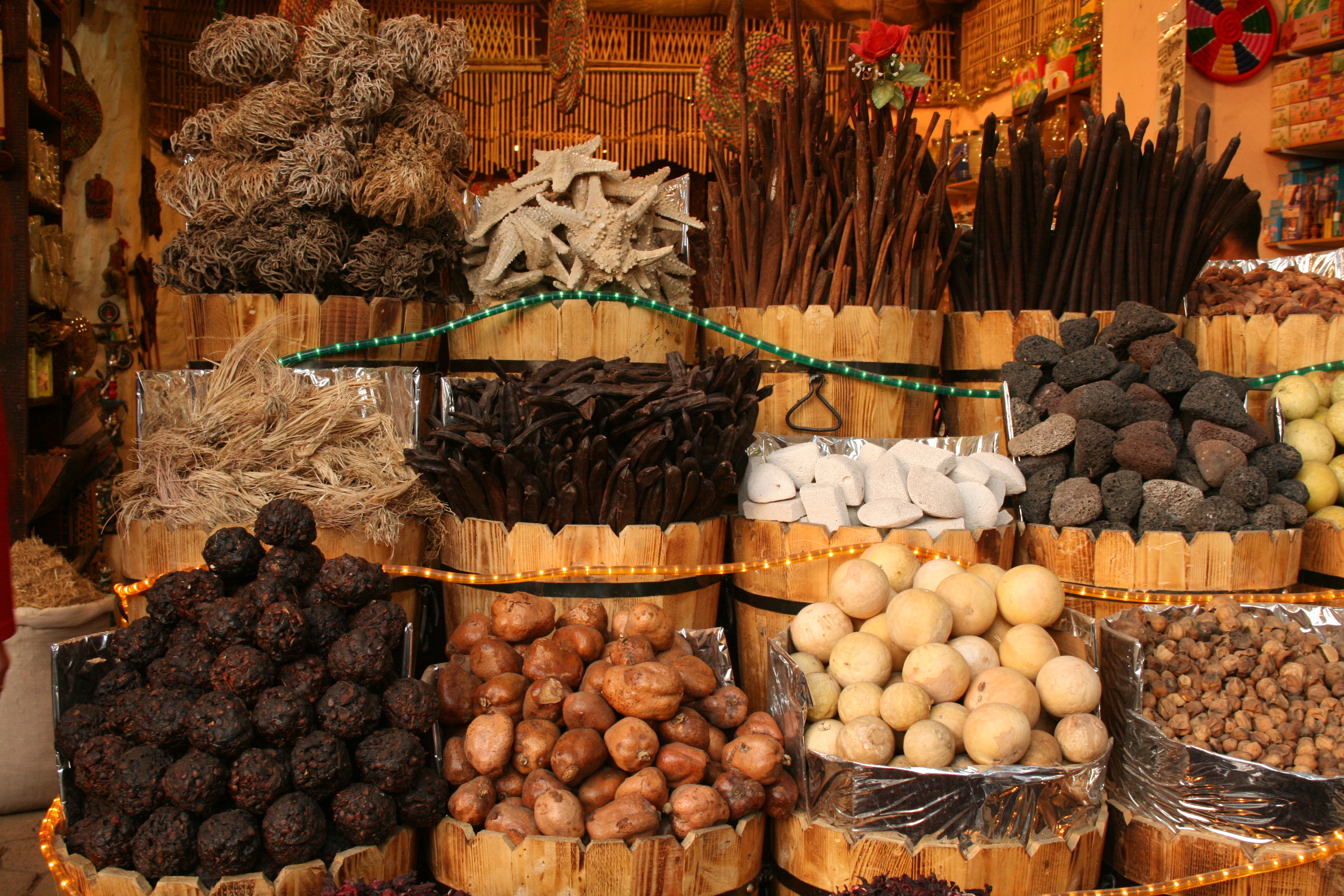Genesis 47 Shrewd Business

Joseph is a shrewd businessman. He has managed all the gathering of the surplus in the years of plenty. Now he carries Egypt through the famine, and fills Pharaoh’s coffers in the process.
Pharaoh chose well when he picked Joseph to manage Egypt during the years of the upcoming prophecy. I wonder if he had any idea how wise that decision was. Joseph didn’t seek this position. He didn’t ask for it either. But he didn’t turn it down when it was offered to him.
Joseph was experienced in managing things when he was chosen for this role. He had done so for Potiphar and for the prison. God gave him a place to practice and the skillset to do the tasks with. These he learned from the time he was little. And these would have Pharaoh owning ALL the land in Egypt and its people before the famine was over. That ownership would not be cruel, as one would think of for ‘slaves’, but it would profit Pharaoh and the people. It would restore the economy once everything was said and done. Let’s join Joseph as he ‘rights the ship’ of Egypt.
♥ ♦ ♥
The years of plenty are far behind the people. The famine is so severe that they wonder if those years might have actually been a dream. “How can we possibly go on!” is the cry of more hearts than not. But go on they must.
Joseph has watched over the storehouses of Egypt since their construction. For four years, he has been selling the grains that are stored in them. Joseph sets fair prices for all who come to him, but he does not give Pharaoh’s resources away for free. He even pays for the grain he gives to his family in Goshen. Pharaoh has set aside a specific allotment that he gives to the priests for their service to the people.
The common man has to pay; whether he is from Egypt or Canaan. And Pharaoh’s coffers are nearly overflowing. In fact, Pharaoh is the only one left in the land with money. The days have come when the people have no money to offer in exchange for the food they so desperately need. They need it to keep their families alive and for their livestock. Both will die without it.
The land has produced nothing for years, so the people have had nothing by which to regain the money spent the previous season for food. Each year, they pray to their gods for rain. Their gods remain silent. It is no use in planting without rain. Their seed would be wasted on the ground.
It is the sixth year of the famine. The storehouses still have grain, but it is diminishing. The people of the land of Canaan have run out of money to purchase Egypt’s grain. The flow of people from other lands has dwindled down to nothing. But Egypt is still in the grip of hunger; not that Canaan isn’t hungry too. The time has come for Joseph to focus all the resources on the land of Egypt.
The people of Egypt come to the storehouses with empty pockets. The first destitute man of the season stands before Joseph; willing to give whatever he has to keep his family alive another year.
“Zaphnath-Paaneah, I beg of you! Do not let us starve to death. I and my little ones must have food!”
“What will you give me in exchange for this food” asks Joseph.
“I have no money left to give. It is already gone. You know this as we have brought it to you already.”
“I do know this, and I am sorry for you, my friend. But Pharaoh’s grain is not free.” Joseph stands there pondering as the man sinks even lower in his place before Joseph.
“Zaphnath-Paaneah is going to let us die” the man concludes within himself.
When the man seems at his lowest, Joseph offers him an alternative. “Give me your livestock in exchange for grain. They will belong to Pharaoh, but it will be your responsibility to care for Pharaoh’s property.”
The man’s head springs up from where it had sunk on his shoulders. “YES! I will do this! I will sell Pharaoh my livestock in exchange for food for the year.”
“Be certain that Pharaoh’s livestock do not starve to death. You will receive food for them that MUST be given to their care. Otherwise, you will own Pharaoh for their lives.”
“It will be done my lord!”
The man signs his name and promise on a scroll that will be saved and Joseph’s servants load the man’s sacks with grain and he moves away from the head of the line. His bargain will ensure that he can come each month and receive an allotment for the rest of the year. He need only present his name at the proper times.
Word quickly spread of Joseph’s bargain with the man. Those in line were quick to offer up their livestock as well. Those who were afraid to come, as they had no money to offer, now joined those who would stand before Zaphnath-Paaneah and offer Pharaoh their livestock in exchange for their survival.
The year moves along like the last five years. No rain. No crops growing. Nothing to do but survive it and mark the days until the end. Zaphnath-Paaneah had said that his God had declared seven years for this famine. The people prayed to every god they could think of to end it sooner and sustain them through it.
Their gods were deaf, for it was now the beginning of the seventh year and the people are again in need of food. The bargain for grain for livestock has reached its end. A group of men gather before Zaphnath-Paaneah to make their plea together this year.
“We will not hide from my lord that our money is all spent. The herds of livestock are my lord’s. There is nothing left in the sight of my lord but our bodies and our land. Why should we die before your eyes, both we and our land? Buy us and our land for food, and we with our land will be servants to Pharaoh…”
Joseph is listening closely to their plea. He knows of the desperation of the people. He also knows that the time of the famine is coming to an end. Soon it will be time to replant. Soon there will again be a harvest.
“… And give us seed that we may live and not die, and that the land my not be desolate” (verses 18b-19).
This was a good deal for Pharaoh. There will be next to nothing in the land of Egypt that Pharaoh does not own. All that will remain outside of Pharaoh’s coffers are the lives and land of the priests and the lives of Joseph’s own family.
Joseph agrees to the exchange. But he also makes certain that the people will still have homes and futures. “Behold, I have this day bought you and your land for Pharaoh. Now here is seed for you, and you shall sow the land. And at the harvests you shall give a fifth to Pharaoh, and four fifths shall be your own, as seed for the field and as food for yourselves and your household, and as food for your little ones” (verses 23-24).
The people are overjoyed! They are once again saved from starvation. And Joseph is only requiring a portion of their harvest, when it finally comes again, to be given to Pharaoh. The people cry out in gratitude. “You have saved our lives; may it please my lord, we will be servants to Pharaoh” (verse 25).
Joseph implements this bargain throughout the land of Egypt. There is not a single parcel of land outside of the lands of the priests and the land of Goshen that does not belong to Pharaoh.
In the second month of the seventh year of the famine, rain again falls on the land. Joseph feels the first drops of rain hit his skin. “Is it over” he wonders. Looking to the sky, Joseph saw the clouds gathering. These weren’t like the wispy clouds that occasionally passed overhead for the last too many years. These clouds brought promise in the weight they showed in their dense curd-like structures. “It’s over” Joseph breathed. Within an hour, people were dancing in the fields and streets! The rain poured down on the land; drenching it with healing rain. Sinking deep into its thirsty cracks.
The seed that Joseph gave the people to sow will reap a harvest! It was not wasted on the ground. Egypt will again bloom. And the storehouses provide enough to sustain the whole land until the harvest is brought in.
(to be continued)
God sustained Egypt. I’m wondering if He multiplied the storehouses like he did for the widow woman who fed Elijah. The oil and flour never ran out until there was more to replace it. God did this because she trusted in Him and gave of what she had to Elijah. Joseph gave of what Egypt had for the people of Canaan. Did God bless that generosity? I have no difficulty believing that.
Did you notice that Pharaoh’s portion was the same as it had been in the years of plenty? I have a feeling that the storehouses would be filling up again. They would be put to good use.
Father God, thank You for YOUR plans. You put Joseph exactly where You wanted him to be. YOU provided opportunities for him to gain the skills that would be needed to keep everyone alive. Your plans are amazing!
Your plans for my life are still a mystery to me. You have given me opportunities that will bring and have brought me skills I use today. Thank You for each step in those preparations. And thank You that, whatever comes next, and Your preparations for that too. I’m content to keep things how they are for as long as You have that planned for me too.



